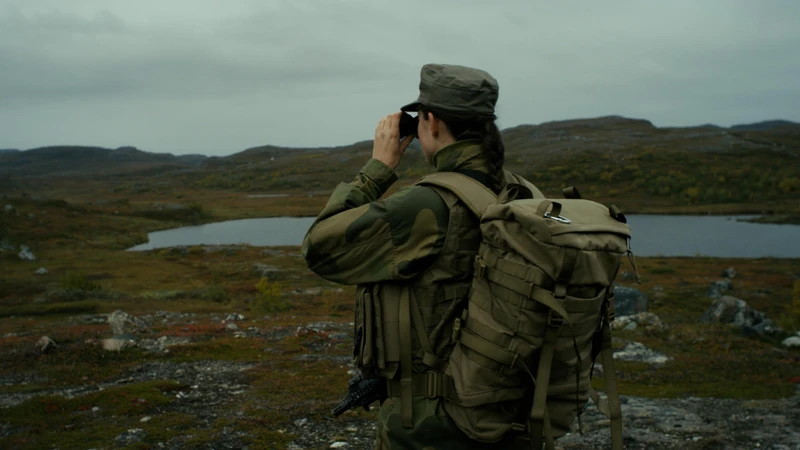Knut Åsdam’s Murmansk / Kirkenes
8 Sep-16 Sep 2023
PV 7 Sep 2023, 5.30-8pm


KARST presents Murmansk / Kirkenes by Norwegian artist and filmmaker Knut Åsdam. The three channel film presentation will open on 7 September with an introductory conversation between Åsdam and KARST’s Head of Programme, Ben Borthwick. Åsdam’s film is the first phase of an ongoing project that explores the evolving, intensifying landscape of the Norwegian-Russian border and a Europe undergoing dramatic change.
Murmansk / Kirkenes was made in response to the rapidly changing relationship between Russia and the rest of Europe, following Russia’s invasion and annexation of Crimea and before the war in Ukraine.
As a documentary-fiction hybrid, Murmansk / Kirkenes engages with the contemporary situation of Europe in crisis from a political, economic and material perspective. Capturing moments from either side of Europe's northernmost border with Russia, Murmansk / Kirkenes presents two parallel narratives, separated both geographically and politically.
Elements of the film shot in Norway follow two Norwegian female soldiers patrolling the border outside Kirkenes. This part of the film rests solely on physical movement and observation of the border and the terrain without dialogue. The soldiers search a landscape devoid of events, looked at through a necessary paranoid gaze as they scan for abnormalities. Though their closeness with the landscape grows throughout the film, the soldiers’ immersion in political division assimilates their bodies into state apparatus.
The Russian element is actor-driven, focusing on the work tasks and floating relationship between two female cafe workers in Titovka. Best known for being a frontline during the Second World War, Titovka is a stopping-place situated in a sparsely populated military zone between Murmansk and Kirkenes. Dialogue revolves around personal, everyday subjects; work life and working conditions, media and representations of reality, and non-normative desire. Conversations between the women also reflect the state’s ideological control over representation and its insistence on an edited version of history.
Since Russia’s invasion of Ukraine, the themes addressed in the film and installation have intensified, leading Asdam to further explore them in a second chapter of the project to be shown at KARST in 2025. Responding to the initial film, Murmansk / Kirkenes 2 will explore how the fabric and dynamic of Europe has continued to be rewoven through military, social, economic, and demographic factors. The film will be structured around the idea of exile as a response to social and political necessity and desire.